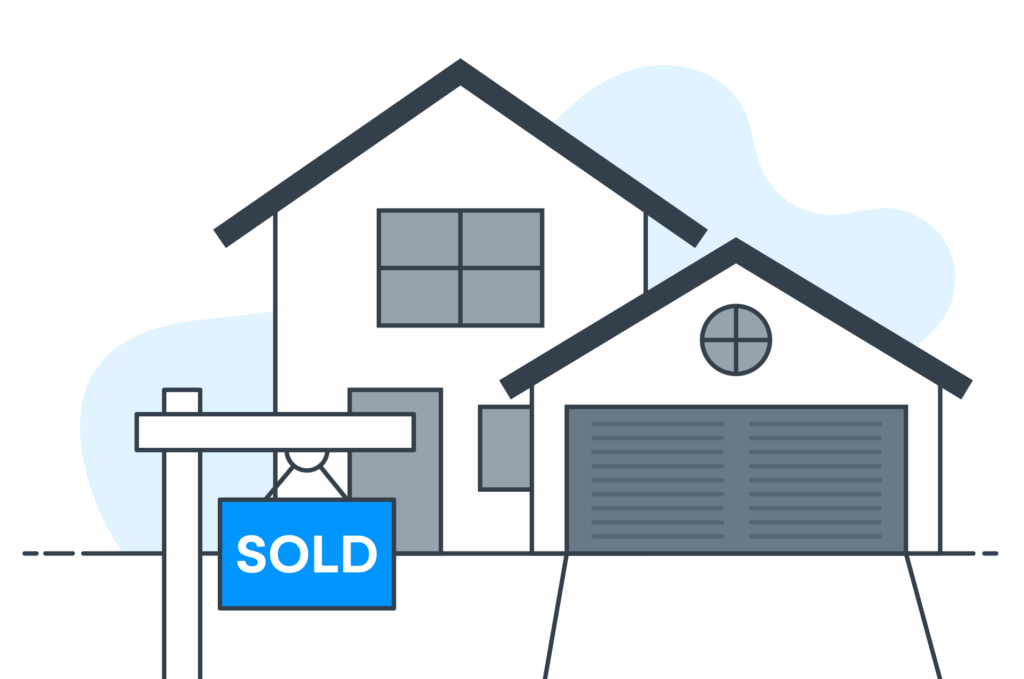
Before buying a home, check the condition of the roof, foundation, electrical system, plumbing, and neighborhood safety. Buying a new home can be an exciting yet daunting experience.
To ensure you make a wise investment, it’s crucial to thoroughly inspect the property before making a purchase. By paying close attention to the condition of the roof, foundation, electrical system, plumbing, and neighborhood safety, you can avoid potential costly repairs and ensure a smooth transition into your new home.
In this guide, we will outline the top five things to check before buying a home, equipping you with the knowledge to make an informed decision and secure your dream home.
:max_bytes(150000):strip_icc()/real-estate-short-sale_sourcefile-5029c549f7c249ebb831e3f0e61fcab2.jpg)
Credit: www.investopedia.com
Table of Contents
Why Buying A Home Is A Significant Decision
Buying a home is a significant decision that requires careful consideration. Before making a purchase, it’s essential to check various aspects such as location, property condition, neighborhood, and potential for future value appreciation. Understanding these key factors can help ensure a successful and rewarding homeownership experience.
Investment In Your Future
Buying a home is not just about finding a place to live; it’s a significant investment in your future. Homeownership puts you on the path to building equity and long-term financial security.
Sense Of Stability And Belonging
When you own a home, you gain a sense of stability and belonging. It provides the opportunity to put down roots and become an integral part of a community.
Homeownership goes beyond just having a place to live – it’s a decision that impacts your financial well-being and emotional fulfillment. Make sure to consider these factors while evaluating your options.

Credit: m.facebook.com
Tip 1: Determine Your Budget
When you’re in the market for buying a new home, the first and most critical step is to determine your budget. Knowing your financial constraints will help guide you in your search for the perfect home and prevent you from falling in love with a property outside of your price range.
Calculate Your Affordability
Calculate your affordability by assessing your current income, savings, and any existing debts. Factor in your monthly expenses, such as bills, groceries, and other essentials, to arrive at a realistic figure of how much you can afford to spend on a home each month.
Consider Additional Costs
In addition to the actual purchase price of the home, there are several additional costs to consider. These may include closing costs, property taxes, homeowners insurance, and maintenance expenses. Factor these into your budget to ensure you’re prepared for the full financial responsibility of homeownership.
Tip 2: Research The Neighborhood
When buying a home, it’s crucial to not just focus on the property itself, but also to consider the surrounding neighborhood. Researching the neighborhood can help you determine whether it’s a good fit for you and your family. In this blog post, we will discuss two key aspects to evaluate when researching the neighborhood: amenities and infrastructure, and crime rates and safety.
Evaluate Amenities And Infrastructure
One of the first aspects to consider when researching a neighborhood is the availability of amenities and the quality of infrastructure. Amenities could include parks, recreational facilities, shopping centers, and schools. Is the neighborhood well-served by public transportation? Are there good shopping and dining options nearby? Assessing the availability and quality of these amenities can provide insight into the overall convenience and livability of the area.
Additionally, it’s essential to evaluate the infrastructure of the neighborhood. Does it have well-maintained roads and sidewalks? Are there reliable utilities such as electricity, water, and sewage systems? These factors can impact your daily life and the long-term value of your property. A neighborhood with good infrastructure ensures easy accessibility and can enhance your quality of life.
Check Crime Rates And Safety
Another crucial aspect to investigate when researching a neighborhood is the crime rates and overall safety. Safety is a paramount concern for any homeowner, and understanding the crime trends in the area can help you make an informed decision.
By checking the crime rates, you can get an idea of the level of security in the neighborhood. Are there frequent reports of burglaries, vandalism, or other crimes? Are there neighborhood watch programs or active community involvement in ensuring safety? Consider these questions to assess the overall security and peace of mind you and your family will have in your new home.
Moreover, it’s a good idea to physically visit the neighborhood at different times of the day and week. This will give you a firsthand experience of the atmosphere and allow you to observe any safety concerns, noise levels, or potential issues that might not be apparent during a single visit.
Remember, researching the neighborhood is just as important as evaluating the property itself when buying a home. By assessing amenities and infrastructure, as well as crime rates and safety, you can make an informed decision that aligns with your lifestyle and provides a safe and secure environment for you and your loved ones.
:max_bytes(150000):strip_icc()/rent-to-own-homes-final-602483f8b7f0461fb3d33f101c267f24.png)
Credit: www.investopedia.com
Tip 3: Assess The Structural Condition
Before purchasing a home, make sure to assess its structural condition. Look for signs of wear and tear, foundation issues, and structural damage to ensure a safe and secure investment. Hiring a professional inspector can help uncover any potential problems and provide peace of mind.
[if mso | IE]>
| <![endif] |
When it comes to buying a home, one of the most important aspects to consider is its structural condition. Assessing the structural integrity of a house will help you determine if it can withstand the test of time and provide a safe living environment for you and your family. In this tip, we will explore two key factors to focus on when evaluating the structural condition of a potential home: inspecting for structural issues and reviewing the age and maintenance.
Inspect For Structural Issues
It is crucial to carefully inspect the property for any potential structural issues before making a purchase. Structural issues can range from minor problems like cracks in walls or ceilings, to more serious issues such as foundation problems or sagging floors.
- Look for any visible signs of damage, like cracks, bulges, or bowing walls.
- Check if the doors and windows open and close smoothly.
- Inspect the roof for any signs of leaks or missing shingles.
- Examine the basement for water damage or signs of moisture.
- Walk around the property and observe any sloping or uneven floors.
Review The Age And Maintenance
The age and maintenance of a property play a significant role in its structural condition. Older homes might have undergone wear and tear over the years, requiring frequent repairs and maintenance. Here are a few things to consider:
| – | Review the maintenance records to see if the property has been well-maintained. |
| – | Ask about any renovations or upgrades that have been made to the property. |
| – | Consider hiring a professional home inspector to conduct a thorough assessment. |
By assessing the structural condition of a home, you can make an informed decision about its suitability for your needs and avoid any costly repairs or safety hazards in the future.
Tip 4: Examine The Legal Documentation
Purchasing a home is a significant financial decision, and it’s crucial to ensure that all legal aspects are in order before finalizing the deal. Examining the legal documentation is a crucial step in the home buying process that shouldn’t be overlooked. By carefully reviewing the documents, you can uncover any potential legal issues and guarantee a smooth home ownership experience. Here are two essential aspects to consider when examining the legal documentation.
Check Title Deed And Ownership
One of the first things you should investigate is the title deed and ownership of the property. This is crucial as it verifies that the seller is the rightful owner of the property and has the legal right to sell it. To confirm this important information, request a copy of the title deed from the seller or their representative. By examining the title deed, you can ensure that there are no liens against the property and that there are no disputes or legal claims that might hinder your future ownership.
Review Past Renovations And Permits
An important aspect of the legal documentation to consider is past renovations and any permits obtained for them. Renovations can add value to a property, but it’s essential to ensure that they were carried out legally and have the necessary permits. Review the documentation related to any past renovations done on the property. If there are any major additions or modifications, check if the proper permits were obtained from the local authorities. This step will help you avoid potential legal and financial issues down the line, as unauthorized or unpermitted renovations can lead to complications during the ownership transfer process.
Examining the legal documentation before buying a home is a crucial step that can save you from future legal hassles. By thoroughly checking the title deed and ownership status, as well as reviewing past renovations and permits, you can be confident that you’re making an informed decision and securing a legally sound property ownership. Ensure that you invest sufficient time and attention in examining the legal aspects of the home buying process to guarantee a smooth and trouble-free experience.
Tip 5: Hire A Qualified Home Inspector
When it comes to buying a home, it’s crucial to ensure that you are making a sound investment. Hiring a qualified home inspector is one of the most important steps you can take to protect yourself and your financial future. A professional inspection can uncover hidden issues that may not be apparent to the untrained eye, giving you the peace of mind that you are making an informed decision. Here are the reasons why a professional inspection is so important:
Importance Of Professional Inspection
A professional home inspection is a critical aspect of the home buying process. It provides you with an unbiased evaluation of the property’s condition, giving you valuable insights into any potential problems that could require costly repairs in the future. By hiring a qualified home inspector, you can:
- Identify structural issues that could compromise the safety and integrity of the home.
- Uncover hidden defects, such as water damage, mold, or pest infestation.
- Assess the overall quality of the home’s construction and identify areas that may need attention.
- Evaluate the condition of essential systems, such as plumbing, electrical, and HVAC.
- Estimate the remaining lifespan of major components, such as the roof or appliances.
Ask For Detailed Inspection Report
Once the inspection is complete, the home inspector will provide you with a detailed report that outlines their findings. This report is a valuable tool that can help you negotiate repairs or adjustments with the seller. When reviewing the report, pay close attention to:
- The inspector’s notes regarding any major issues or safety concerns.
- Any recommended repairs or maintenance tasks.
- The estimated cost of necessary repairs.
- The overall condition rating of the home.
By carefully analyzing the inspection report, you can make an informed decision about whether to move forward with the purchase, renegotiate the terms, or seek further professional opinions.
Remember, a qualified home inspector is your advocate during the home buying process. Their expertise can save you from costly surprises down the line and ensure that you make a confident and well-informed decision.
Frequently Asked Questions For Home Owner Guide – 5 Thinks To Check Before Buying Home
What Are Some Important Considerations Before Buying A Home?
Before buying a home, consider factors such as location, budget, property condition, nearby amenities, and long-term investment potential. These factors play a crucial role in ensuring you make an informed decision and find a home that meets your needs and preferences.
How Can I Determine If A Neighborhood Is Suitable For Me?
To assess if a neighborhood is suitable for you, research its crime rates, proximity to schools and workplaces, accessibility to amenities, noise level, and community atmosphere. Visiting the area multiple times at different times of the day will also give you a better understanding of the environment and help you make an informed decision.
Should I Hire A Home Inspector Before Purchasing A Property?
Yes, hiring a qualified home inspector is highly recommended. They will thoroughly inspect the property, identifying any potential issues or maintenance needs. This information helps you negotiate a fair price, estimate future repair costs, and have peace of mind knowing the condition of the home you are purchasing.
A professional inspection is an investment in your future.
What Should I Consider When Evaluating A Property’s Value?
When evaluating a property’s value, consider factors such as size, layout, condition, age, location, recent renovations, and similar home sales in the area. It’s also important to consult with real estate professionals who have experience in the local market and can provide valuable insight into the property’s value and potential appreciation.
Conclusion
Conducting these five essential checks before purchasing a home can save you from future headaches and ensure a successful investment. From inspecting the structure and assessing the neighborhood to evaluating the home’s energy efficiency and reviewing the legal documentation, each step plays a vital role in making an informed decision.
By following these guidelines, you can confidently navigate the home buying process and find your dream home.




